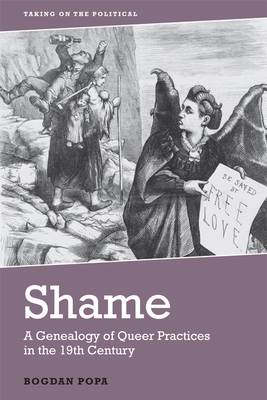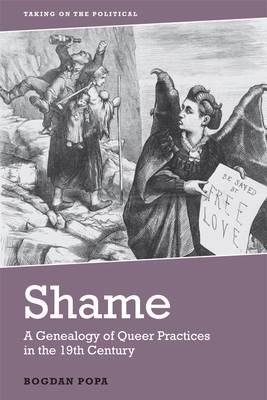
- Retrait gratuit dans votre magasin Club
- 7.000.000 titres dans notre catalogue
- Payer en toute sécurité
- Toujours un magasin près de chez vous
- Retrait gratuit dans votre magasin Club
- 7.000.0000 titres dans notre catalogue
- Payer en toute sécurité
- Toujours un magasin près de chez vous
Description
Shame has often been considered a threat to democratic politics, and was used to degrade and debase sex radicals and political marginals. But certain forms of shame were also embraced by 19th-century activists in an attempt to reverse entrenched power dynamics.
Bogdan Popa brings together Rancière's techniques of disrupting inequality with a queer curiosity in the performativity of shame to show how 19th-century activists denaturalised conventional beliefs about sexuality and gender. This study fills a glaring absence in political theory by undertaking a genealogy of radical queer interventions that predate the 20th century.
Spécifications
Parties prenantes
- Auteur(s) :
- Editeur:
Contenu
- Nombre de pages :
- 224
- Langue:
- Anglais
- Collection :
Caractéristiques
- EAN:
- 9781474441391
- Date de parution :
- 14-11-18
- Format:
- Livre broché
- Format numérique:
- Trade paperback (VS)
- Dimensions :
- 155 mm x 231 mm
- Poids :
- 158 g

Les avis
Nous publions uniquement les avis qui respectent les conditions requises. Consultez nos conditions pour les avis.






